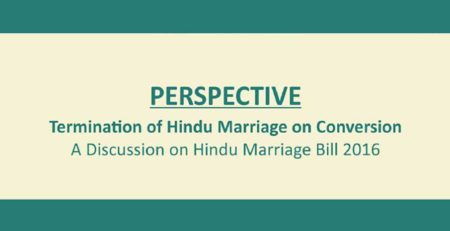The Law of Tawhin-i-Risalat: A Social, Political and Historical Perspective
Tolerance – the Islamic approach
The Islamic state is under an obligation to protect its social fabric as jealously as the civilized West does in respect of its own common values and ideals. A nation tolerant about its basic postulates invites its own damnation. If tolerance can be withheld from Haiti and Panama in the name of some higher considerations essential to a mighty neighbor, it only means that tolerance has a limit, which must not be bypassed.
Muslim society is value‑bonded insofar as it is committed to a religious message. It gives the same position to the Qur’ānic principles as others award to ethnicity in ethnic societies, to color in color‑conscious societies, and to economic considerations in materialistic societies.
However, it does not mean that Islam disapproves of a plural society. The history of Islam affords ample evidence for accommodating innumerable religious, cultural and other minority groups in almost all Muslim states. The prestige enjoyed by the Jews under the ‘Abbāsids of Baghdad and the Umayyads of Spain has been proverbial. It can safely be claimed that the Muslim society is the only example of a successful religious and cultural pluralism in history.
Unpleasant as it may be, the stigmatization experienced by the Muslim minorities in the West is incommensurate with the declared principles and ideals of these countries. It is unfortunate that a country like France where traditions of liberty, equality and fraternity were trumpeted at a high note is discriminating against the Muslims.
In this background, it appalls us to hear criticism on a law aimed at protecting the prime value of the Islamic ideology, the basis of society and culture in Islam. The law of Tawhīn‑i Risālat (insulting prophethood) is merely to ensure legal protection to the Prophet’s person. It is not a law of blasphemy in the sense we find in different Western countries, nor is it comparable with the laws governing heresy and blasphemy against religious people in medieval Europe, nor has it anything to do with the kind of inquisition we come across in post‑Muslim Spain. The law, in fact, aims at protecting the sanctity of the very source of guidance on which the entire legal, constitutional, social, and cultural edifice of Islam rests. The sanctity of this guidance is primarily guaranteed by the conscience and inner commitment of its believers. If this inner commitment is challenged, it amounts to shaking the entire system. That is why, Muslim society has always been extremely sensitive about anything affecting the Prophet’s person. Right from the days of the sahābah (companions) up to our own times, the consistency of the Muslim reaction in different parts of the world, in different situations, and at diverse stages of history should be understood in the light of these submissions.






